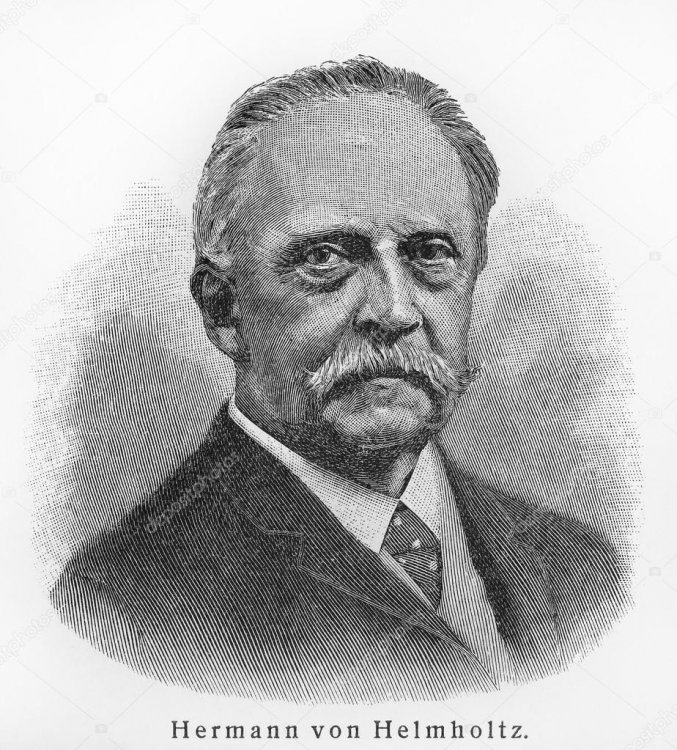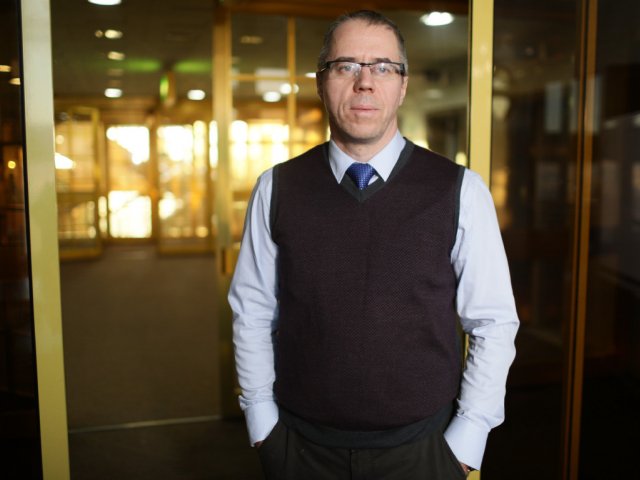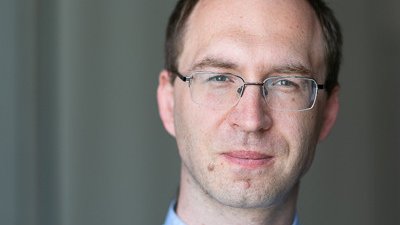Official:
Hermann Ludwig Ferdinand von Helmholtz. August 31, 1821 – September 8, 1894. German physicist, physician, physiologist, psychologist, acoustician.
Life and Work:
1. “Although sciences are a factor that awakens and forms the most refined capabilities of the human consciousness, yet he who studies and researches only to know will not find the true meaning of his own existence on Earth. Only active work makes a person’s existence worthy,” Hermann von Helmholtz wrote. His own active work is admirable: Helmholtz is considered one of the most versatile and prolific scientists of the 19th century.
2. The physicist Helmholtz formulated and proved the law of energy conservation, introduced the equations of vortex motions in hydrodynamics and the concept of free energy in thermodynamics.
3. The physiologist Helmholtz developed the theory of vision, the resonant theory of hearing, the ideas of visual perception of space; he investigated color vision, tone sensations, and sound perception. He was the first to measure the speed of the nerve impulse and invented the ophthalmoscope. He was the first to look at the eye fundus.
4. The psychologist Helmholtz revealed the close connection of muscular, sensory and mental factors in the perception and building the world picture, and was among the first to put forward the theory of unconscious reasoning. It was Helmholtz who pioneered the experimental study of sensory organs activity.
5. A graduate of a Potsdam gymnasium, where his father worked as headmaster at the time, he entered the Royal Medical and Surgical Institute in Berlin, where military doctors were trained.
6. The future scientist did not stay in the army for long. At the famous Alexander von Humboldt’s request, Helmholtz was allowed to leave the military. Then another famous scientist – the physiologist Johann Müller intervened in his fate: on his recommendation, Helmholtz was invited to the position of professor of physiology and general anatomy at the University of Königsberg.
7. When the scientist went to Königsberg he was already married, but his wife Olga von Felten, a military surgeon’s daughter, could not stand the climate of East Prussia. Again, not without Humboldt’s help, Helmholtz moved to Bonn and took the chair of anatomy and physiology at the university. Then the famous Heidelberg University, where the Department of Physiology had been recently established, lured the scientist away.
8. In 1870, the venerable physiologist was elected member of the Prussian Academy of Sciences. It would seem that his career has reached the top, but no: in 1871, Helmholtz abruptly turned from the well-trodden path and took the chair of physics at the University of Berlin.
9. The cramped and inconvenient physical laboratory of the University of Berlin did not satisfy Helmholtz, and the professor, supported by his colleagues and the government, got down to business eagerly: as a result of their efforts, the Imperial Physics and Technology Center was established. Helmholtz became its first president.
10. In 1888, Emperor Frederick III granted the scientist nobility, and he became known as von Helmholtz. The next emperor, Wilhelm II, granted him the rank of full privy councilor and the Order of the Black Eagle. France awarded the professor the Legion of Honor star, and the city of Berlin elected him its honorary citizen.
11. After his first wife’s death, Helmholtz raised two children alone. But not for long: his second wife, his colleague’s daughter, Anna von Mol, gave birth to three more children. Robert, the eldest son from his second marriage, showed great promise in physics, but did not live to 30 years of age.
12. Back in 1867, Helmholtz applied his research results to women’s fashion and in his Handbuch der Physiologischen Optik [Handbook of Physiological Optics] argued that women’s dresses with horizontal stripes make the figure slimmer. The women have been failing to accept this for the next 150 years.
13. “If an optician sent it [the eye] to me as an instrument, I would send it back with reproaches for the carelessness of his work and demand the return of my money.” Helmholtz considered God a poor optician, but further research showed that the scientist was mistaken.






















